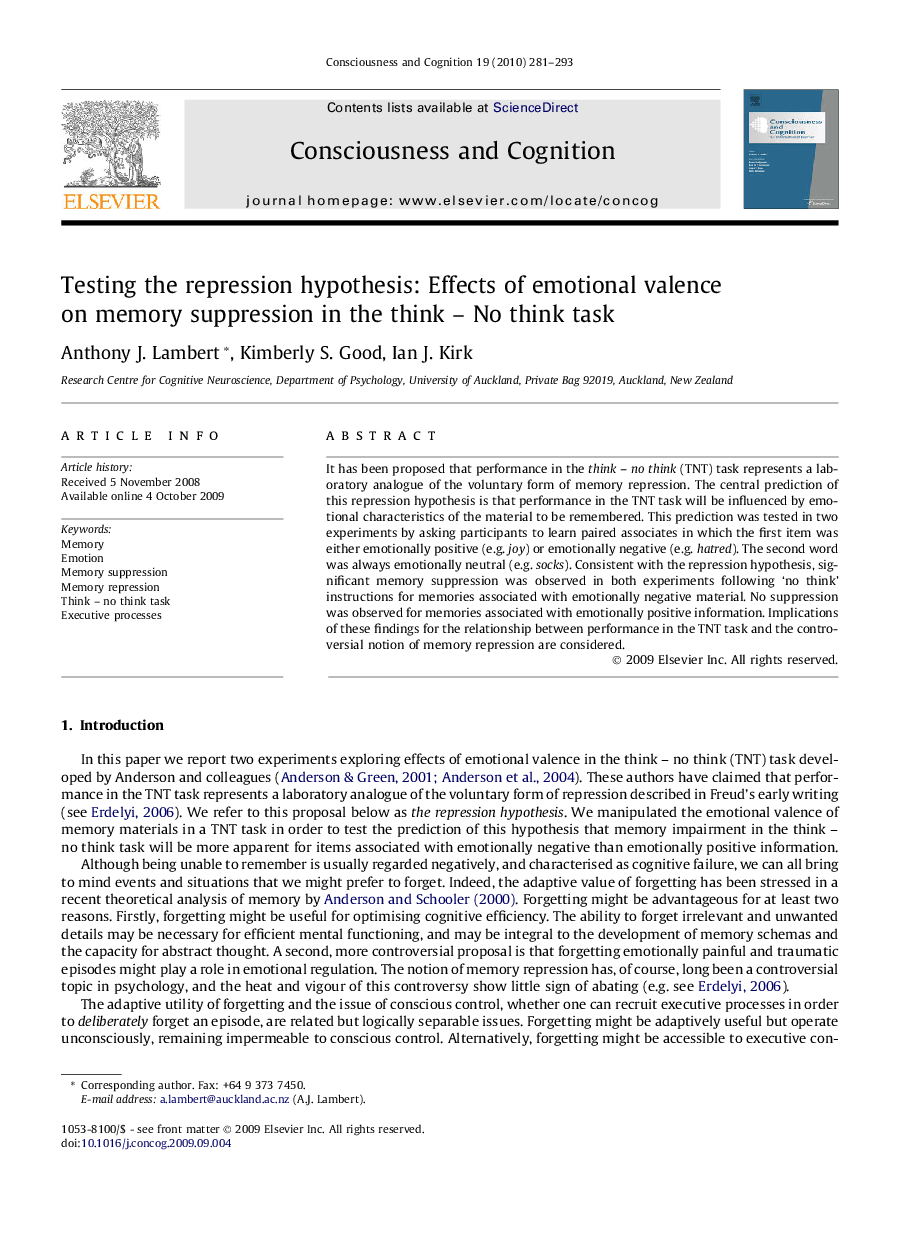| Article ID | Journal | Published Year | Pages | File Type |
|---|---|---|---|---|
| 10458778 | Consciousness and Cognition | 2010 | 13 Pages |
Abstract
It has been proposed that performance in the think - no think (TNT) task represents a laboratory analogue of the voluntary form of memory repression. The central prediction of this repression hypothesis is that performance in the TNT task will be influenced by emotional characteristics of the material to be remembered. This prediction was tested in two experiments by asking participants to learn paired associates in which the first item was either emotionally positive (e.g. joy) or emotionally negative (e.g. hatred). The second word was always emotionally neutral (e.g. socks). Consistent with the repression hypothesis, significant memory suppression was observed in both experiments following 'no think' instructions for memories associated with emotionally negative material. No suppression was observed for memories associated with emotionally positive information. Implications of these findings for the relationship between performance in the TNT task and the controversial notion of memory repression are considered.
Related Topics
Life Sciences
Neuroscience
Cognitive Neuroscience
Authors
Anthony J. Lambert, Kimberly S. Good, Ian J. Kirk,
